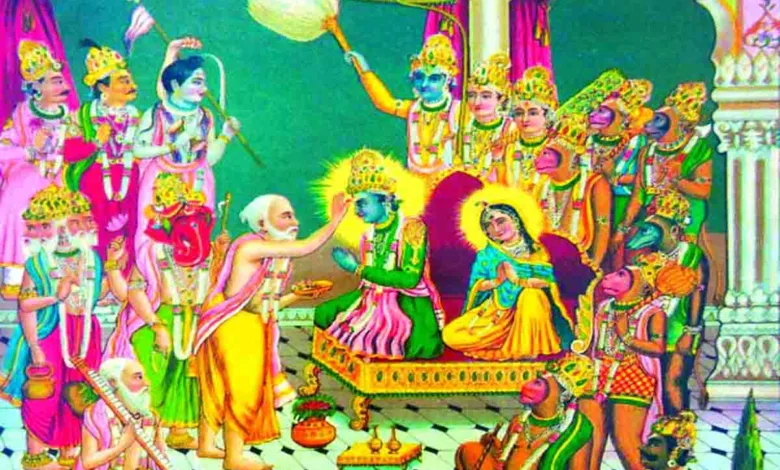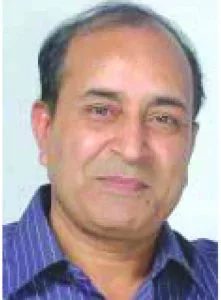Reviving Ram Rajya: A pivotal alternative to decaying democracy

Monday, 26 February 2024 | in Guest Column
 Vir Singh
Vir Singh
GUEST COLUMN
In the lively clamour of elections, a profound silence casts its shadow, revealing the paradox of the “Festival of Democracy.” The very essence of this festival simmers on the political crucible, overshadowing even the agricultural heartbeat of our nation. In the relentless pursuit of electoral dominance, the nation has metamorphosed into an election-centric entity, where the concoction of election strategies simmers day and night, permeating every moment of the year. Democracy, the lifeblood of our country, has endured various trials, from surviving British rule’s divisive legacy to grappling with internal disputes and separatism post-independence. Now, at a critical juncture, democracy stands at a crossroads, yearning for a dynamic alternative to ensure its own transcendence.
In the meantime, in its national council meeting held recently, the Bharatiya Janata Party passed a resolution describing the Ayodhya Ram temple as a “historic and glorious achievement” for the country, establishing Ram Rajya in India for the next one thousand years with the invocation of the new Kalachakra.
India, with its diverse cultural and historical tapestry, has long grappled with two models of governance: democracy and Ramrajya. While democracy is celebrated for its ideals of freedom and equality, concerns loom over its impact on the nation’s integrity, well-being and glory. In contrast, Ram Rajya embodies the true essence of Indian culture, offering a harmonious and ideal system of governance. A closer examination of the threats posed by democracy unveils Ram Rajya as a meaningful alternative in the Indian context.
Despite its roots in ancient Greece, democracy has become a globally adopted political system. In the Indian context, democratic principles aim to secure individual freedoms, establish jurisprudence and foster governance. However, over time, external influences have eroded the integrity of the democratic system. Western countries, self-proclaimed defenders of democracy, have witnessed a contamination of democratic ideals by non-democratic elements, potentially leading to regrettable consequences for their native citizens.
In India, the mosaic of languages, religions and traditions poses both strength and challenge to democracy. While the democratic process promotes public interests, it simultaneously recognises parties and groups that may encroach upon national interests. This dual-edged nature leads the nation toward disintegration, often at the expense of long-term national interests.
Within a democracy, decisions are predominantly based on the wishes of the majority. However, some communities prioritise self-interests, fostering vertical relationships with the nation and its leaders. This breach in democracy enables the emergence of separatist ideologies, fragmented identities and the proliferation of toxic elements. The nation fades into the background as fear, violence, corruption and socio-cultural pollution thrive.
Democracy, instead of ensuring economic equality, engenders socio-economic disparities. Capitalism becomes integral to democracy, creating a divide where some thrive in opulence while the majority languishes in poverty. Inequality and unrest become inherent by-products of this democratic system. The duty of any governance system is to pave the way for a better future, a task hindered by the election-dependent nature of democracy. The propagation of toxic subcultures, separatism, and treason within the democratic framework jeopardises the nation’s future. Blindly imitating democracy has led European countries to grapple with issues arising from Islamic minorities, posing a threat to their peace and stability.
In light of these challenges, it is time to reconsider democracy as the ideal governance system and reevaluate the merits of Ram Rajya. Rooted in ancient Hindu scriptures, especially the Ramayana, Ram Rajya envisions a just and merciful ruler, Lord Rama, whose kingdom thrives under a common culture, equality and prosperity.
Ram Rajya prioritises dharma, justice and compassion, embodying Indian values. It fosters unity within society, discourages division, and upholds morality and ethical leadership. The focus on community welfare aligns with the rich vision of Indian culture, emphasising the holistic welfare of all living beings. In the concept of Ram Rajya, we should also consider that in the hands of Ram, there was also a bow and arrow for eliminating the demons.
In navigating the complex governance landscape, India finds itself at a crossroads between democracy and Ram Rajya. Striking a balance between democratic elements and the governance qualities inherent in Ram Rajya could pave the way for a culturally rich nation to overcome its unique challenges. As Prime Minister Narendra Modi noted after the consecration of Ramlalla in the Ram temple, the emergence of Ram Rajya in India is not only necessary but imperative for the nation’s identity, eternity, cheerfulness and glory.
(The author is professor emeritus, GB Pant University of Agriculture and Technology. Views expressed are personal)






